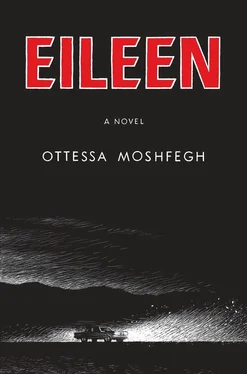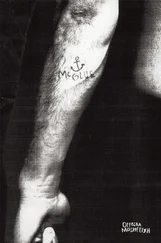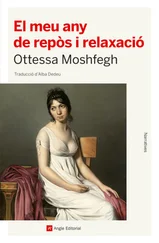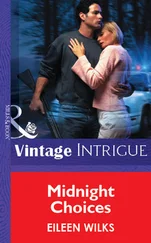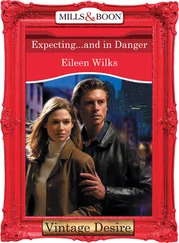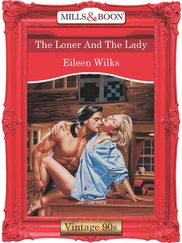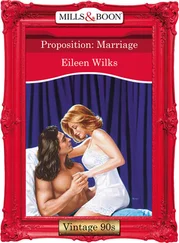• • •
T hat afternoon, as Mrs. Stephens was putting on her coat to leave for the day, I deigned to ask her what the boy had done to get put into solitary.
“Polk,” she said in a huff, double-chinned. She pulled linty woolen mittens over her fat, chapped hands. “Troublemaker,” she said. “Nasty boy.” It strikes me now that I was relentlessly unforgiving of Mrs. Stephens. Everything she did I interpreted as a personal affront, as a direct attack of some kind. Though I never retaliated, I considered her my enemy. It’s true she wasn’t warm or even pleasant, but she never really harmed me. She was just endlessly crabby. Once she was gone, and the other office ladies had left for the day, I found the Polk file, the papers slightly yellowed inside the folder. “Crime: patricide.” The file was thick with Dr. Frye’s notes, mostly dates and times and incomprehensible Latinate scribbles. In a newspaper clipping affixed to the short rap sheet, I read that Leonard “Lee” Polk had slit his father’s throat while he was asleep in bed. The boy had no history of violent behavior, the report said, and neighbors had called him a “quiet child, well mannered, nothing special.” Something like that. His face in his mug shot was surly, with tight, down-turning lips and unfocused, exhausted eyes. In his file, under “comments,” it read “mute since day of crime” in my own messy schoolgirl cursive.
Just then, like birdsong at midnight, a magic, melodic voice rang out from down the dim hallway. It was Rebecca saying good night to James. I tried to collect myself, listening as the ticktock of her heels got louder. After a moment, she stood before me in a long black coat, briefcase in hand. Hours had now passed since the ridiculous Christmas pageant. I tried to smile, fumbling to put Leonard Polk’s file back in order, but I lost my grasp on the folder and its contents spilled out, pages flapping onto the dirty linoleum.
“Uh-oh,” I said like a fool. Rebecca came behind the office counter to help me pick up the papers. I watched her from behind as she squatted down to reach under Mrs. Stephens’s desk. She gathered the fabric of her skirt up so that it wouldn’t drag on the floor, revealing her calves — refined, gentle curves, nothing like mine, which were spindly and childish. “My goodness,” she said, reading the document in her hands. “Can you imagine killing your own father?” She handed the paper back to me, eying me knowingly, I thought.
“Thank you,” I said, blushing.
“It’s a story for the ages, of course. Kill your father, sleep with your mother,” Rebecca went on. “The male instinct can be terribly predictable.” She leaned over my shoulder, squinting at the photograph of the boy. Her hair fell like a curtain between us. She swept it back and strands fluttered against my cheek like feathers. She bit her lip. “Leonard Polk,” she read aloud. I could smell cigarettes on her breath, and violet candies.
“He’s been in solitary,” I told her. “I’ve never seen him out here at all. No visitors.”
“Now that’s a shame,” said Rebecca. “May I?” She spread her palms open before me. I handed her the folder.
“I was just doing some filing,” I told her stupidly, hoping she wouldn’t suspect me of snooping.
Rebecca flipped through the papers in the folder. I pretended to look busy, rearranging things on my desk, scanning an old questionnaire. “Name your favorite celebrity. What time do you go to bed at night?”
“I’ll just borrow this,” Rebecca said, slipping the Polk file into her briefcase. “Fun bedtime reading,” she quipped. I sat back down at my desk, anxious and awkward, while she buttoned her coat. “Some show today.”
“They do it every year.”
“I’d call that cruel and unusual punishment,” she replied. She flung a fuzzy mohair shawl over her shoulders, untucked her hair. I felt I had utterly failed to impress her. I resolved to say more, be cooler, more charming, smarter, funnier, more alive the next time we talked. “Well, see you in the morning,” she said, and ticktocked down the hall to the blustery evening outside.
On the way home that night, I stocked up on alcohol for my father at Lardner’s, then stopped in a drugstore for violet mints and a pack of cigarettes for myself. I rarely smoked, but when something had me riled up I did enjoy a cigarette or two. I tried to put Leonard Polk out of my mind, though the image of him touching himself in the cave had excited me. It was what I’d always hoped to see in all my spying on Randy, just a little glimpse of him being obscene. I shook my head gruffly, as though the image of the boy would get dislodged from my brain, scuttle out my ears, and leave me alone. I wasn’t a pedophile — a word I remembered from Latin class years earlier. Browsing the cosmetics aisle, I found a new shade of lipstick — a glossy, blood red: Passionate Lover. I slipped it into my pocket. The sleeves of my coat — it had been my mother’s — were long and wide at the cuffs, so I could easily lift almost anything. I’ve been good at stealing all my life. I still pinch things from the grocery store from time to time — dental floss, a head of garlic, a pack of gum. I don’t see the great harm in it. I figure I’ve given away or lost enough over my lifetime to even out my debts.
That night I did pay for, along with a humiliating package of sanitary napkins, a small compact of pressed powder, the lightest shade they had: Snow Queen. A fashion magazine on the rack at the checkout counter caught my eye, too. The cover showed a bony, melancholy woman pouting in a gray fur hat, looking upward as though at some disapproving statesman. “Isn’t it romantic…” it said on the cover. The fur, I thought, looked like a house cat. I plunked down the money. The salesgirl handled my package of sanitary napkins as though they were already soiled, pushing it with her fingertips into the paper bag she propped open, cavelike on the counter. She slipped the magazine into its own flat paper bag, which I liked. Back inside the Dodge, I arranged all the brown paper packages on the passenger seat. The bottles of booze, the napkins, the magazine. I took the lipstick from my pocket and applied it liberally over my mouth, blind. When I got home my father said, “Whose rosy ass have you been kissing?” Then he plucked the bottles from under my arm. “Not your color,” he sneered, padding back to the kitchen. Like Leonard Polk, I didn’t say a word.
A grown woman is like a coyote — she can get by on very little. Men are more like house cats. Leave them alone for too long and they’ll die of sadness. Over the years I’ve grown to love men for this weakness. I’ve tried to respect them as people, full of feelings, fluctuating and beautiful from day to day. I have listened, soothed, wiped the tears away. But as a young woman in X-ville, I had no idea that other people — men or women — felt things as deeply as I did. I had no compassion for anyone unless his suffering allowed me to indulge in my own. My development was very stunted in this regard. Did I know that the boys at Moorehead — like prisoners around the world, so it seems — might be being pressured by guards to fight one another for sport at night, that they were made to defecate in their pillowcases, routinely forced to strip by the corrections officers who spat on them, beat them up, tied them down, humiliated and abused them? Rumors surfaced, but their implications didn’t register. I barely even noticed that the boys were handcuffed by the guards when they were escorted to and from the visitation room. Why should my heart ache for anyone but myself? If anyone was trapped and suffering and abused, it was me. I was the only one whose pain was real. Mine.
Читать дальше
